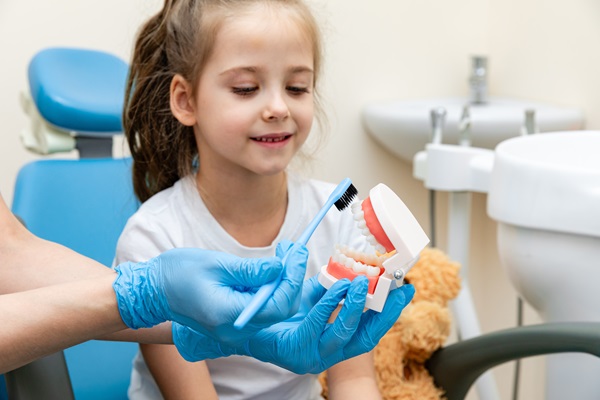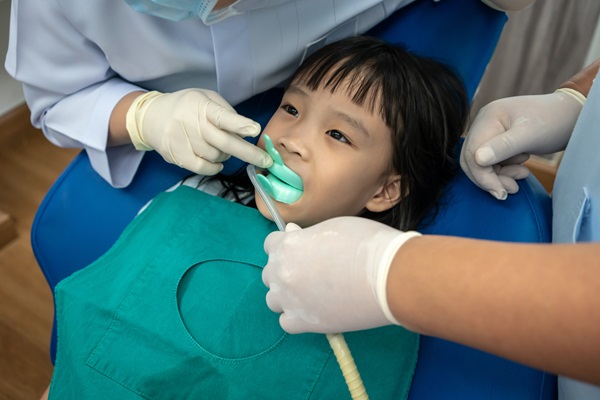 The issue of thumb-sucking is a common concern among parents, especially in the realm of pediatric dentistry. According to the National Institute of Health, around 50% of infants are still sucking their thumbs by age one. This number is even higher closer to birth. Regardless of how common it is, should parents be worried if their child engages in thumb-sucking on a routine basis?
The issue of thumb-sucking is a common concern among parents, especially in the realm of pediatric dentistry. According to the National Institute of Health, around 50% of infants are still sucking their thumbs by age one. This number is even higher closer to birth. Regardless of how common it is, should parents be worried if their child engages in thumb-sucking on a routine basis?
Top questions about thumb-sucking
While many parents feel confident their child will give up the practice independently, it is important to understand the dental, health, social, and emotional effects of prolonged thumb-sucking. Parents should also be aware of what is considered problematic when it comes to this type of habit.
Is thumb-sucking normal?
Many children suck their thumbs at some point, especially during the first few months of life. In fact, many babies start developing this habit while still in the womb. The sucking reflex in infants is strong and is essential to their survival and development, so it is no surprise that thumb-sucking is not only typical but also expected in babies.
Usually, children gradually wean themselves off the practice during the toddler and preschool years. However, some children continue the habit much longer, which can be problematic over time.
What are the risks of thumb-sucking?
One of the most obvious issues with thumb-sucking is the introduction of more bacteria into the mouth. This is especially true of children who are mobile and tend to suck their thumbs during the day or while out in public. This increases the risks of contracting an illness as well as developing tooth decay.
Prolonged thumb-sucking can also affect the development of a child's teeth, bite pattern, and palate. These can cause speech and digestive issues, along with severe misalignment that requires treatment in the near future. Overbite is a common complication of this habit.
Thumb-sucking can have social and emotional consequences, especially for school-aged children. Typically, the habit continues because it offers a source of comfort to a child who may be overly stressed or anxious. Ridicule from peers and adults can make matters worse.
When should a child stop sucking the thumb?
All children differ in how they develop physically, mentally, and emotionally. In general, thumb-sucking is not an issue as long as parents are seeing a gradual decrease in the activity over time. Many pediatric dentistry professionals are not concerned with intervention until the child reaches the age of five. Even then, duration still plays a part. For instance, thumb-sucking only when lying down to sleep at night is often a much smaller problem than thumb-sucking throughout the day, especially when it amounts to six hours or more. When the habit becomes a concern, a dentist may make various recommendations:
- A thumb-sucking guard worn on the hand
- Introducing other options for comfort
- Bitter topical nail solutions
- Taking steps to reduce stress and anxiety in the child's life
- A dental appliance to prevent thumb-sucking
Conclusion
Thumb-sucking is a common issue in pediatric dentistry patients. Talk with your dentist to determine whether your child needs help breaking this habit.
Request an appointment or call Nett Pediatric Dentistry & Orthodontics at 623-759-7658 for an appointment in our Phoenix office.
Recent Posts
Cavity treatment for kids is a chief concern among parents, and for a good reason. Cavities are common in children of all ages. According to the Centers for Disease Control and Prevention, over half of the kids ages 6 to 8 have had at least one cavity in a primary tooth. The good news is…
Pediatric dentistry focuses on the oral problems that occur in children. Many dental issues in kids are similar to those that occur in adults. Without proper treatment, dental problems can progress to misaligned teeth and poor oral health. If you want to maintain your child’s dental health, here are the common dental issues that pediatric…
In their early years, your youngster is still a novice in brushing and flossing their teeth, meaning that cleaning your child's teeth in that period is your responsibility. Cleaning the teeth is a skill that the child should learn. Your role is to educate your youngster on how to keep their mouths clean and healthy.…


